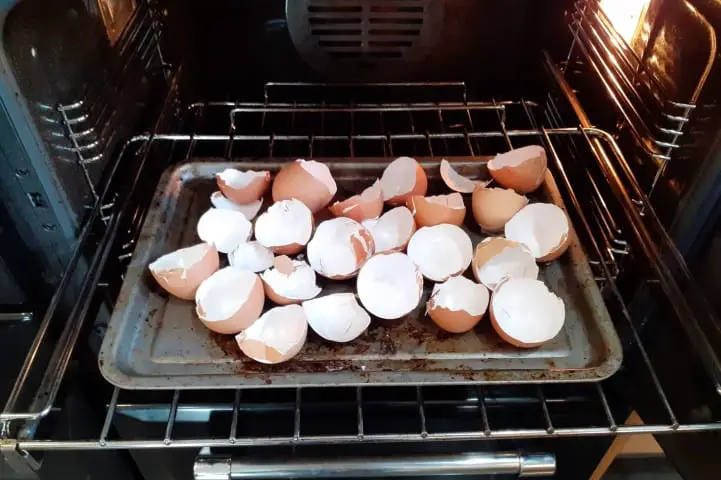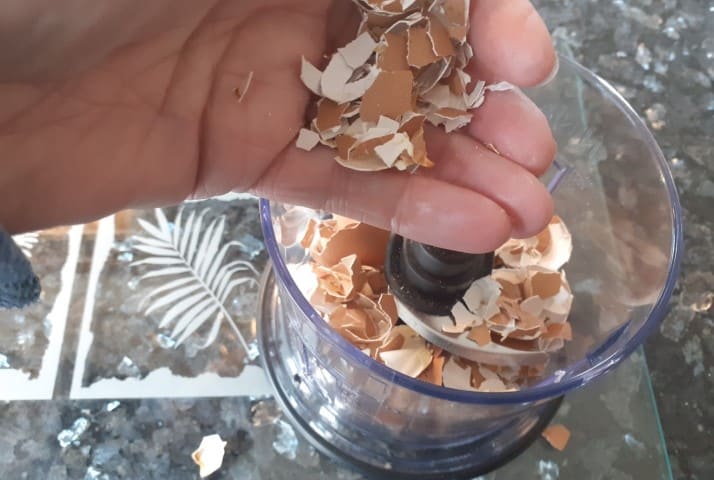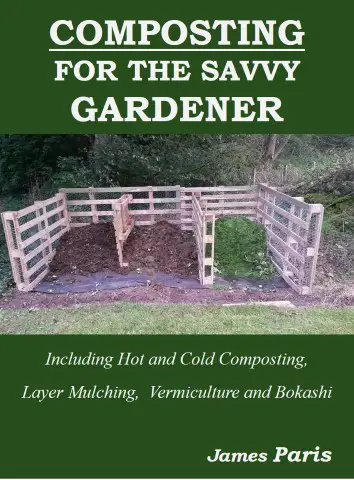I believe that composting eggshells is perhaps one of the better uses for a waste item that is often just discarded into the waste bin, and headed for the landfill.
However there is a right way and a wrong way to compost eggshells if you (or the plants) are to get any serious benefit from them.
So yes you can indeed compost the waste eggshells, and the compost heap will benefit from them – eventually! However the correct and most efficient way to do this and get the most benefit from them, is not to just throw them on the compost and hope for the best.
The best way to compost eggshells:
It is a no-brainer that the eggshells will break down and release their minerals quicker if they are first of all broken up into small pieces that will in turn be assimilated into the soil by micro-organisms and worms.
These are the steps I follow to advance this method still further, once I have a reasonable amount of shells gathered up.
- Collect your eggshells and remove any remaining membrane from the inside.
- Scatter them loosely onto a baking tray and place in a hot over for 10 minutes or so.
- Remove from the oven and let them cool before putting them into a blender.
- Blitz them down into a fine powder.
- Add to the compost heap or even directly into the soil, particularly if your tomato plants have blossom end rot.

By following this method I find the eggshells are absorbed almost immediately into the soil or compost, and indeed the powder can be ingested by worms directly and distributed around the area.
This is the exact opposite to eggshells that have just been thrown onto the compost heap – even if they are broken up manually. The shells on their own will take several years to break up completely, meaning that it will take several years before any benefit can be had from them.
I find that baking the shells in the oven for a few minutes makes them easier to break down in the blender – or in the pestle and mortar if you have no electric blender.

The benefits of eggshells in the soil
The main element present in eggshells is calcium and to a lesser extent protein. However other minerals such as strontium, fluoride, magnesium and selenium are also present in trace amounts.
Calcium in particular can be an effective treatment against blossom end rot, which is often caused by a deficiency of calcium in the soil.
This is a condition that affects many vegetables such as tomatoes, cucumber, squash, and courgette.
The visual appearance of blossom end rot is the discoloration and rotting of the vegetable, beginning at the end where the flower has been – hence the name.
However I have found that this condition can also be caused by over-watering the plants, which has the effect of ‘diluting’ the minerals in the ground resulting in the plant being unable to absorb enough through the normal process.
I therefore always check that the plants are not being over watered before doing anything else.
However if indeed the problem is a calcium deficiency, then simply add a table spoonful or 2 directly into the soil around the base of the plant. This should be enough to cover the whole season without the need to add more.
How much is too much eggshells for compost?
Unless you have a chicken farm and produce loads of eggs, then the measure of how much is not really a problem. You will see that even 12 eggshells produces only a small amount of crushed shell when put in a blender.
As for adding direct into the planting area, I find that a tablespoon of crushed shells scattered around the plant will be more than enough for the season.
Using eggshells for slug control:
Another benefit that eggshells can have around the garden is for slug control. Slugs are the number 1 enemy of the vegetable gardener, especially in wet climates so anything that can be done to control them is a good thing!
When I use the eggshells for slug control I blend them as per the instruction above, but only keep them in the blender until the shells are broken into sharp little pieces – not pulverised completely as I would for soil or composting.
I then scatter these sharp shell fragment around the area prone to slug infestation. Whilst not a perfect remedy, I have found through experience that the slugs do not like to crawl over the sharp shells and will usually try to avoid them.
See this post for organic pest control methods.
Do eggshells need washing before composting?
Strictly speaking, no they do not. However it is good practice for 2 reasons. Firstly, leaving them unwashed risks attracting unwelcome vermin, and secondly, they will crush in the blender more effectively if there is no membrane or egg yolk still attached.
Can you compost egg cartons?
Yes indeed, if of course they are the cardboard type. Tear them up before hand and simply add to the compost. This is regarded as a ‘brown ’ material and will rot down effectively to help give bulk to the compost pile.
’ material and will rot down effectively to help give bulk to the compost pile.
In fact I find that composting the egg cartons that have been carrying the eggs themselves, leaves me with a very satisfying feeling in that the whole product carried from the store is able to be effectively used with nothing going to the landfill.
More uses for cardboard in the garden in this post.
Composting eggshells summary:
Vegetable gardening in particular is really all about the compost or at least soil amendment. If the soil does not have the minerals along with water and sunshine, then the harvest is doomed to be poor.
For this reason, I believe that anything that can be done to improve the soil conditions – especially if it is free! – should be considered.
Good composting practice is essential if you want to maintain your vegetable garden in tip-top shape, and adding powdered eggshells in my opinion, is well worth the effort of making them.
Thanks to using powdered eggshells in my compost and soil, I seldom have any problems with blossom end rot.




